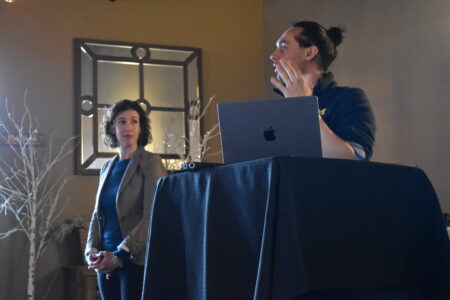MDEQ addresses consent order
HOUGHTON – The Michigan Department of Environmental Quality (MDEQ) addressed a variety of issues raised during a public comment period in granting an operating permit and consent order to the L’Anse Warden Electric Company.
Public comments included a call for more testing for all pollutant emissions.
“HCl testing will be performed more frequently under the conditions of the permit and consent order,” according to the response. “This includes testing on a quarterly basis for four quarters, followed by two semiannual tests, followed by one test in the next three years. More frequent testing is required because the company failed their previous emission tests for HCl. Previous test results indicate that emissions of other pollutants regulated in the permit, are well below their allowable emission rates and therefore, additional testing is not required.”
Other concerns were raised about the long-term health effects of burning creosote railroad ties, currently permitted as fuel sources.
“The commentators were concerned that creosote is a both an endocrine disruptor and is bioaccumulative,” the document says. “Are the emissions of polycyclic aromatic hydrocarbons (PAHs) from the creosote at the facility harmful to people?
“Coal tar creosote is the most widely used wood preservative in the United States,” MDEQ responded. “Among the hundreds of chemicals that may be present in coal tar creosote, the PAHs compose about 75 percent of the mixture and are of particular interest. Both coal tar creosote and PAHs are regulated as carcinogens. Possible health effects from inhalation exposure to PAHs depend on the concentration in the air and the duration of the exposure.
“High short-term exposure levels could cause irritation of the eyes, nose and throat,” AQD responded, having heard these specific complaints from the elderly living near the plant. “The AQD restricts PAH air emissions so that the possible cancer risk to nearby residents is a lifetime risk of 1 in 100,000 or less. The LWEC permit restricts the combustion stack air emissions to ensure public health protection from cancer and noncancer risks.”



